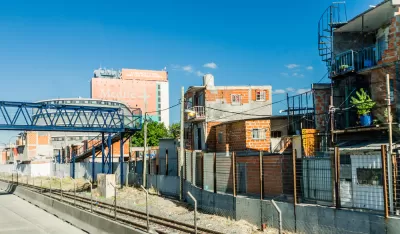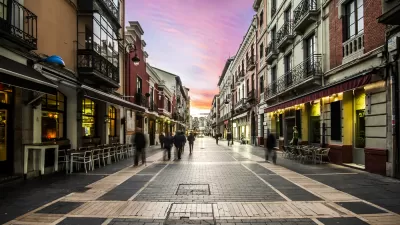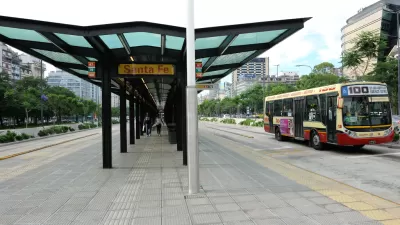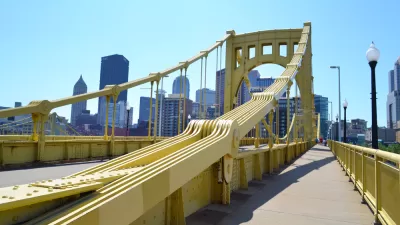A study of a poorer neighborhood in Buenos Aires reveals that a delicate balance of design, public space, planning, and access are keys to success.

Gehl Architects was recently invited to Buenos Aires to analyze urban design and social characteristics of Villa 31, a poorer neighborhood in that city, with the goal of making intelligent decisions to improve conditions and opportunity for residents there. What Gehl found is successful cities combine a blend of planning and organic growth to become successful, and the greatest places in cities are often a result of informal processes.
Five important findings were presented in a recent article in Next City. They are: proximity matters, a neighborhood can be dense and human scale, streets can be joyful and safe public spaces, flexible architecture breeds economic opportunity, and personality shapes place. These universal truths shouldn't come as surprise to readers, but should reinforce the idea of planning as fixing those things that require change as well as leaving well enough alone.
FULL STORY: Embracing the Paradox of Planning for Informality

Planetizen Federal Action Tracker
A weekly monitor of how Trump’s orders and actions are impacting planners and planning in America.

Chicago’s Ghost Rails
Just beneath the surface of the modern city lie the remnants of its expansive early 20th-century streetcar system.

San Antonio and Austin are Fusing Into one Massive Megaregion
The region spanning the two central Texas cities is growing fast, posing challenges for local infrastructure and water supplies.

Since Zion's Shuttles Went Electric “The Smog is Gone”
Visitors to Zion National Park can enjoy the canyon via the nation’s first fully electric park shuttle system.

Trump Distributing DOT Safety Funds at 1/10 Rate of Biden
Funds for Safe Streets and other transportation safety and equity programs are being held up by administrative reviews and conflicts with the Trump administration’s priorities.

German Cities Subsidize Taxis for Women Amid Wave of Violence
Free or low-cost taxi rides can help women navigate cities more safely, but critics say the programs don't address the root causes of violence against women.
Urban Design for Planners 1: Software Tools
This six-course series explores essential urban design concepts using open source software and equips planners with the tools they need to participate fully in the urban design process.
Planning for Universal Design
Learn the tools for implementing Universal Design in planning regulations.
planning NEXT
Appalachian Highlands Housing Partners
Mpact (founded as Rail~Volution)
City of Camden Redevelopment Agency
City of Astoria
City of Portland
City of Laramie





























